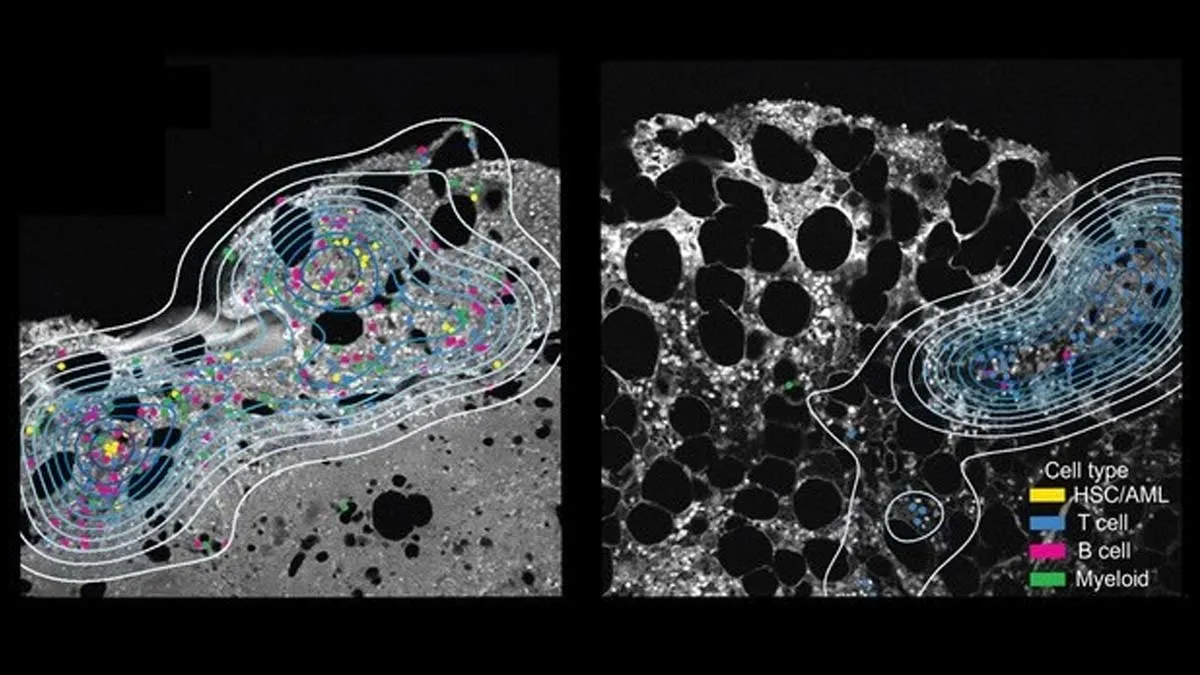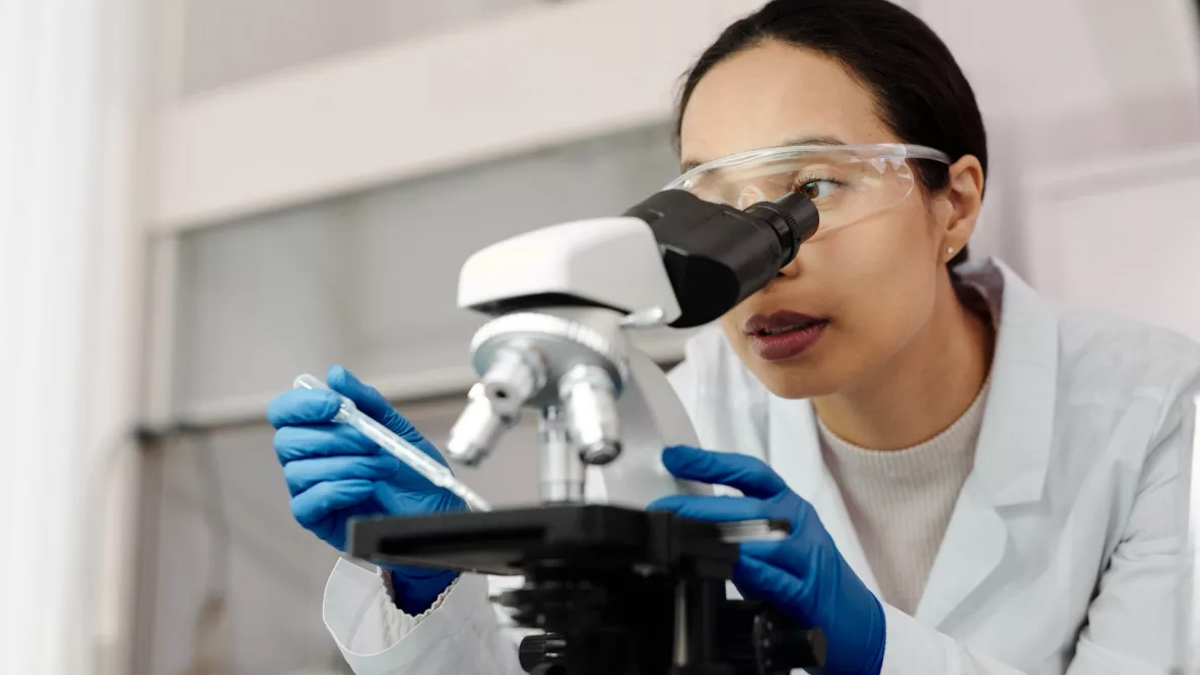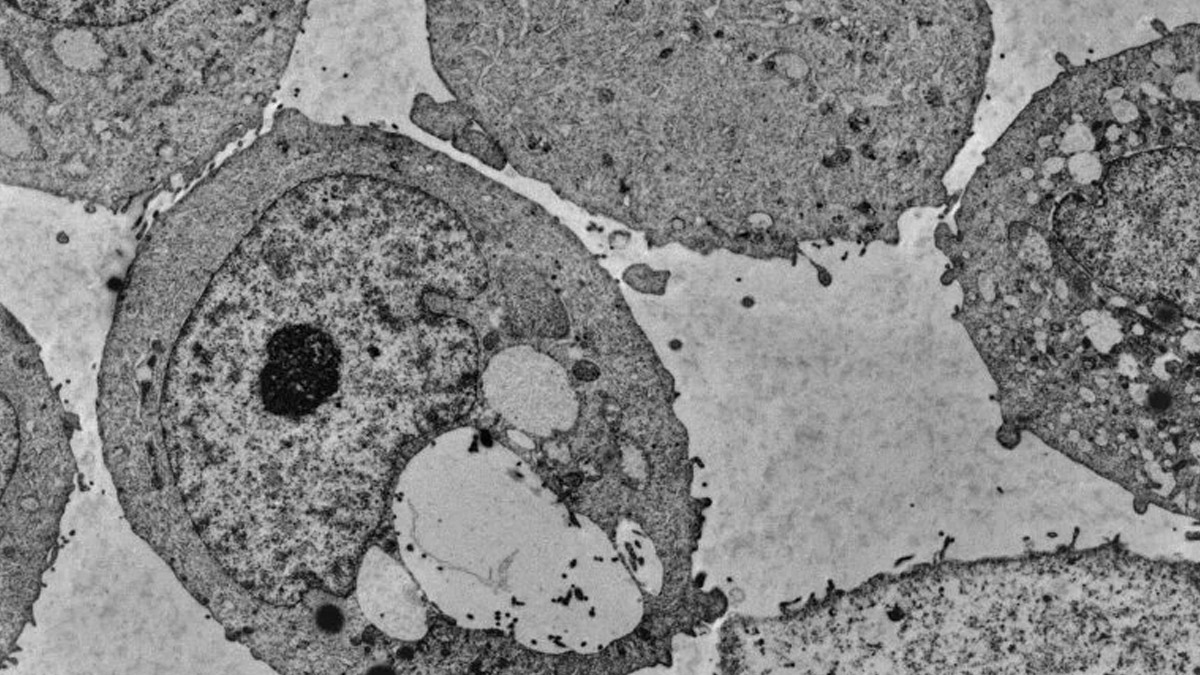
A groundbreaking study led by Columbia Engineering and the Irving Institute for Cancer Dynamics has unveiled a pivotal discovery in cancer immunotherapy. Researchers identified a unique population of immune cells that significantly enhance treatment outcomes for relapsed acute myeloid leukemia (AML). Conducted in collaboration with the Dana Farber Cancer Institute (DFCI), this research offers renewed hope for improving survival rates in a disease notorious for its high relapse rates.
Table of Content:-
Understanding AML and Its Challenges
Acute myeloid leukemia (AML) is a type of cancer that originates in the bone marrow and subsequently spreads to the blood. According to the National Cancer Institute, AML affects approximately four in 100,000 people annually in the U.S. Treatment for AML typically involves targeted chemotherapy followed by a stem cell transplant. However, up to 40% of patients relapse after transplantation, leaving them with limited treatment options and a median survival of just six months. At this advanced stage, immunotherapy often becomes the last hope.

Donor lymphocyte infusion (DLI), a therapy where immune cells from a donor are infused into the patient, is the standard immunotherapy for relapsed AML. Unfortunately, this approach has a five-year survival rate of only 24%, as per Pfizer's research. This highlights the urgent need for innovative strategies to enhance the effectiveness of immunotherapy for these patients.
The Role of Immune Cells in Fighting AML
Led by Professor Elham Azizi, the study delves into how immune networks within the leukemia bone marrow microenvironment influence responses to cellular therapy. The central question of the research was: Why do some patients respond positively to immunotherapy while others do not?
Also Read: Maharashtra Reports 19 Suspected GBS Cases, 1 Death Reported; Rapid Response Team Deployed
The team discovered a distinct population of T cells present in patients who responded favorably to DLI therapy. These specialised cells actively combat leukemia by bolstering the patient’s immune response. Importantly, the study also revealed that patients with a healthier, more dynamic immune environment in their bone marrow were better equipped to support these cancer-fighting T cells.
Revolutionising Cancer Treatment with DIISCO
The research team employed a proprietary computational method known as DIISCO (Dynamic Immune Interactions in Single-Cell Omics). This machine-learning tool enabled them to analyse how interactions among immune cells evolve over time in clinical specimens, shedding light on key mechanisms driving successful immunotherapy outcomes.

The researchers traced the unique T cells back to the donor product but found that the donor’s immune cell composition played a negligible role in treatment success. Instead, the patient’s immune environment was the decisive factor. This discovery underscores the importance of optimising the patient’s immune landscape to improve therapy outcomes.
Toward Improved Immunotherapy Strategies
The findings from this study open doors to potential interventions that could revolutionise AML treatment. By enhancing the immune environment before administering DLI, clinicians could increase the likelihood of success for patients who traditionally have poor responses. The study also suggests combining immunotherapies to create personalised treatment plans tailored to individual patient profiles.
Also Read: FSSAI Orders Patanjali To Recall Red Chili Powder; How To Test Spice Purity At Home
“This research exemplifies the power of combining computational and experimental methods through close collaboration to answer complex biological questions and uncover unexpected insights,” said Azizi. “Our findings not only shed light on mechanisms underlying successful immunotherapy response in leukemia but also provide a roadmap for developing effective treatments guided by innovative machine learning tools.”
Cameron Park, a PhD student and co-developer of the DIISCO algorithm, added, “Seeing our findings validated through functional experiments is incredibly exciting and offers real hope for improving cancer immunotherapy.”
Bottomline
Building on this breakthrough, the research team plans to focus on strategies that enhance the effectiveness of DLI therapy by modulating the tumor microenvironment. Although these findings represent a significant leap forward, further studies and clinical trials will be needed to translate these insights into practical treatment options.
This pioneering research holds the promise of significantly improving outcomes for patients battling relapsed AML, marking an important step in the fight against one of the most challenging forms of cancer.
Also watch this video
How we keep this article up to date:
We work with experts and keep a close eye on the latest in health and wellness. Whenever there is a new research or helpful information, we update our articles with accurate and useful advice.
Current Version